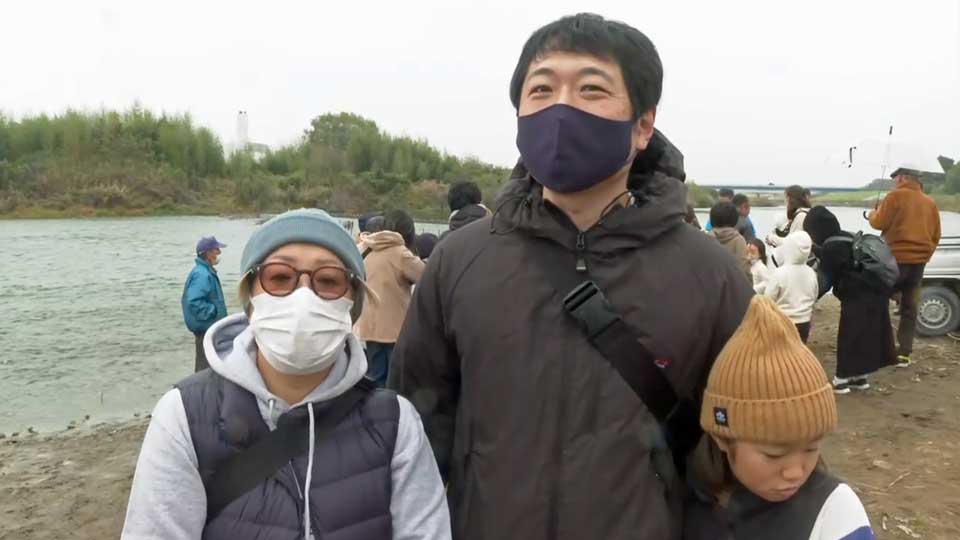From over 2000 salmon a day to just a few

A local fisheries cooperative in Chikusei City, Ibaraki Prefecture, on Sunday held its annual tour of the Kinugawa River for children to watch salmon swimming upstream.
Just five salmon were caught that day. The children touched them and took photos.
In 2009, when the salmon catch peaked, the district netted more than 100 a day. That number has now dwindled to only a few.

One parent called the situation critical.
An organizer said the event won't be able to continue if the salmon catch keeps falling.
Poor catches have been reported across the country.
In the past, 2,000 to 3,000 salmon were caught daily off Miyagi Prefecture's Sanriku coast.
But only a few salmon were caught each day in October. This month, the daily number has risen to a dozen.
What's causing the poor catch?
Japan's salmon catch peaked in 1996 and has been declining ever since.
Catches on the main island of Honshu, in particular, have sharply fallen in recent years.

This season's numbers so far are even lower. The catch in Miyagi is currently only about 10 percent of last year's figure for the same period.

Kaeriyama Masahide, a professor emeritus at Hokkaido University's Arctic Research Center, says salmon were unable to return to spawn this year because the summer's intense heat made sea temperatures too high for them.
An 'heirloom dish' is impacted

The record-low catch has affected restaurants that serve harako-meshi, Miyagi Prefecture's best known salmon dish.
One restaurant serving the dish takes pride in using locally sourced salmon and roe.
But this year it has only been able to buy a quarter of its salmon locally and has turned to Hokkaido salmon to make up the difference.
Calling the dish his town's heirloom, the restaurant's owner says the poor catch worries him.

The city of Murakami in Niigata Prefecture is known as a salmon town.
One long-established Japanese restaurant offers full-course meals using local salmon all November and it's fully booked.
The restaurant's owner is visiting local fishing ports daily to obtain enough salmon.
He says he can't tell customers he's run out so the shortage is a grave problem.
A gloomy outlook for salmon fishing in Japan
Kaeriyama says the distribution of salmon will shift north unless global warming is stopped.
He says he expects salmon populations to increasingly move to the Bering and Arctic Seas, and areas where they can exist in Japan will be few to none.
